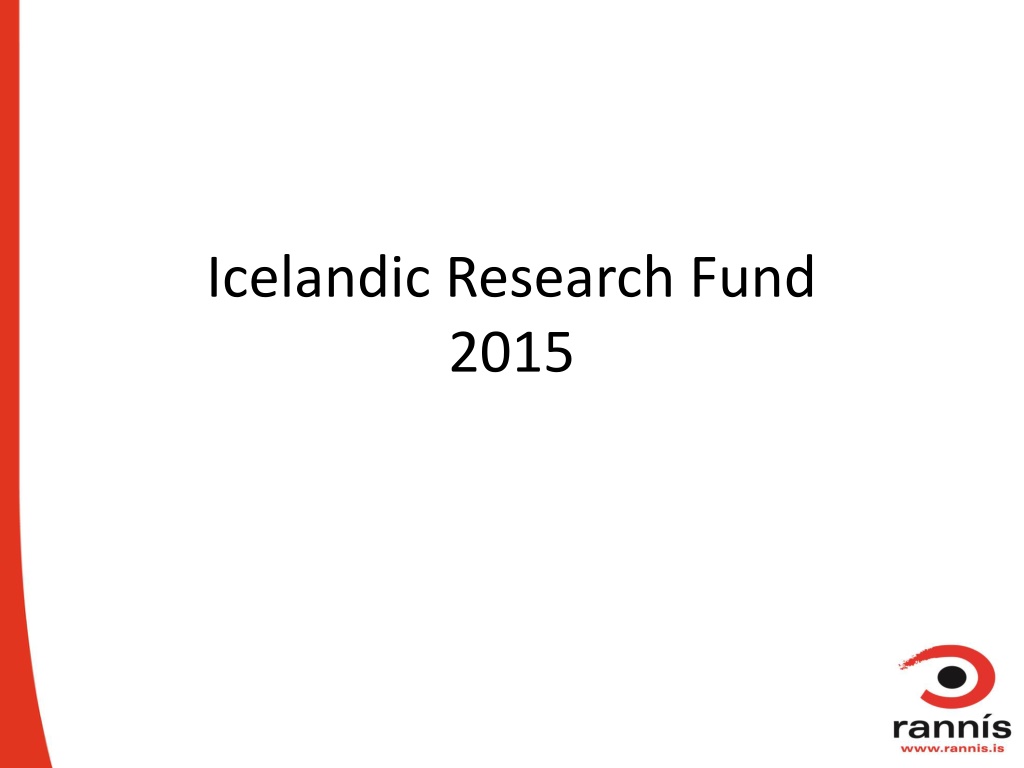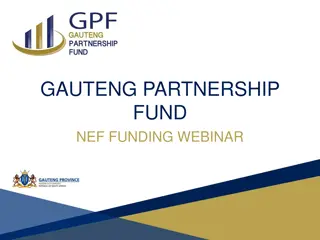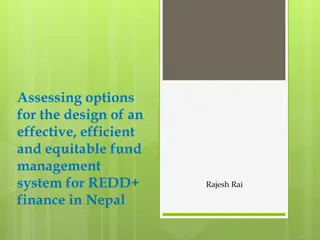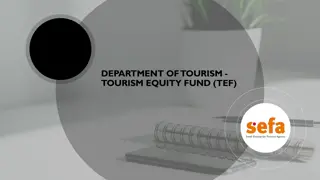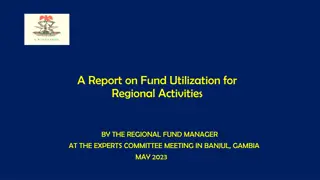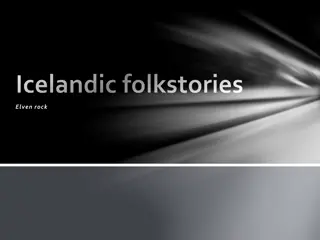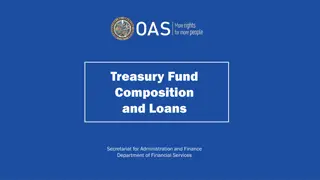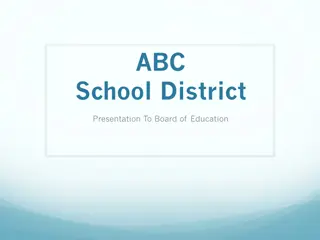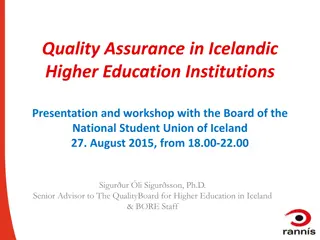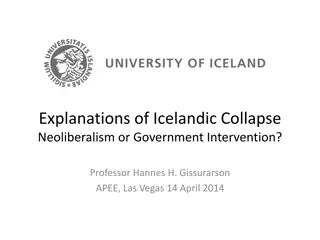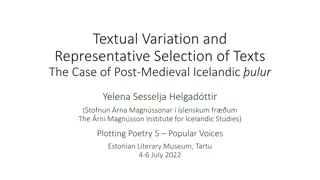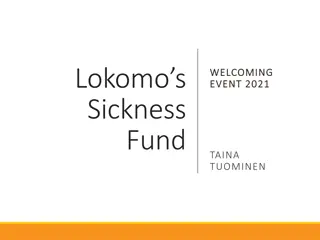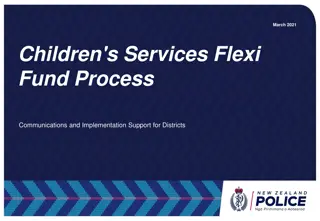Icelandic Research Fund 2015: Enhancing Scientific Research and Education
The Icelandic Research Fund (IRF) aims to enhance scientific research and education in Iceland by awarding funding to research projects led by individuals, teams, universities, research institutes, and companies. Principal investigators must have completed graduate studies and experience in running research projects. The grants include Grants of Excellence for large-scale projects and Postdoctoral Fellowships for young scientists. General requirements include clear objectives, research plan, milestones, and budget justification. Doctoral students can apply through project grants or Grants of Excellence.
- Icelandic Research Fund
- Grants of Excellence
- Postdoctoral Fellowships
- Research Funding
- Scientific Research
Uploaded on Sep 14, 2024 | 0 Views
Download Presentation

Please find below an Image/Link to download the presentation.
The content on the website is provided AS IS for your information and personal use only. It may not be sold, licensed, or shared on other websites without obtaining consent from the author. Download presentation by click this link. If you encounter any issues during the download, it is possible that the publisher has removed the file from their server.
E N D
Presentation Transcript
The Icelandic Research Fund The role of the Icelandic Research Fund (IRF) is to enhance scientific research and research education in Iceland. For this purpose the IRF awards funding to research students and defined research projects led by individuals, research teams, universities, research institutes, and companies (cf. Act 3/2003 with later amendments).
Eligibility Principal investigators must have completed graduate studies at a an internationally accredited university and have experience in running research projects. Doctoral students apply with their supervisor who is the principal investigator of the project. The same individual may apply for any number of grants as a principal investigator. Only one type of grant proposal can be submitted for the same research project.
General requirements for all grant types The project shall have clear objectives, research plan and well-defined milestones. It should be stated who will carry out each part of the project. A detailed budget and cost justification is required, clearly explaining all parts of the project, their individual cost and financing. The proposal shall clearly describe the proposed deliverables and impact of the project.
Grants of excellence Grants warded to large scale projects with the aim to carry Icelandic research to the international forefront. For research groups and thus, co-proposers are required in addition to the PI. The PI shall be a scientist with a recognized track record, leadership qualities and experience in running research projects. A contribution of graduate students. Co-operation with foreign researchers.
Postdoctoral fellowships Are available to young scientists having received their Ph.D. degree within 5 years from the start of the project. Have to have a host institution (letter of intent). The grant provided by the IRF amounts to a total of 100% of the total project cost. In addition to general requirements the proposer shall explain how the fellowship fits with previous work, how it will enhance his/her career development and as well as inform about the proposer s future research plans.
Doctoral students No specific application forms are available for doctoral students but funding for doctoral students can be applied for on the forms for project grants and grants of excellence A PI includes salaries for a PhD student without a specific person in mind. If the PI gets funded the PhD position can be advertised. A PI includes salaries for a specific PhD student. In this case the student writes a LOI stating his/her future plans and how the project fits therein.
Grant size Max for 1 year (MISK) Max for 2 years (MISK) Max for 3 years (MISK) Over- head Grant type IRF % Grant of excellence 35 70 105 85% 20% Project grant 10 20 30 85% 20% Postdoctoral fellowship 7 14 21 100% 20%
Eligible cost Salaries and related cost Operational expenses Travel expenses Contracted services Dissemination cost max 500 thousand, the final year of the project Overhead and facilities 20% of all cost applied for, except for contracted services. All cost must be justified and explained in detail
Salaries incl. related expenses Max. per month (ISK) Max. number of months per person Level Senior personnel 1 (e.g. Full professor) 670.000 36 Senior personnel 2 (e.g. Associate or assistant professor) 550.000 36 Postdoctoral researcher 480.000 36 Doctoral student Researcher 350.000 36 Master's degree student 300.000 12
Proposal forms and appendices All proposal forms and appendices must be in English Access to electronic submission system Specific forms for: Project description CV No specific forms for: Letters of intent from other participants (GoE and PG), host institution (Postdoctoral fellowship grants), and doctoral students Price quotes
Project description: a. Objectives of the project and originality b. State of the art and proficiency c. Methodology, work plan and timescale d. Milestones and deliverables e. Co-operation (domestic/foreign) f. Contribution of doctoral and master's degree students to the project (if appl.) g. Impact h. Proposed publication of results i. Career development plan (specific for Postdoctoral Fellowship proposals)
Deliverables The deliverables of the projects would be measurable units resulting from the project, including: Published scientific articles Publications University diplomas Software Databases Production methods New products Patents Models Research methods Confirmed scientific theories
Rejection of proposals Incomplete proposals will be rejected. Proposers should under no circumstances contact either Board members or expert panel members with matters regarding proposals under review. Any issues regarding proposals under review are handled by RANN S. Failure to comply with these requirements leads to rejection. Ethical issues (plagiarism, fabrication, falsification etc.) may lead to rejection. No documents or information regarding the proposal will be accepted after the deadline.
Expert panels Engineering, technical sciences and physical sciences Natural science and environmental science Health science and life sciences Social sciences and public health Humanities
Expert panels Appointed by the Science committee of the Science and technology policy council. Serve for 2 years. Each panel has a maximum number of 7 panelists. At least two members are from abroad. Two external (outside of Iceland) experts review each proposal. The expert panel reviews all the proposals, establishes a ranking list based on the expert evaluations, and finalizes each proposal with a written report. The expert panels are responsible for evaluation and ranking of proposals. External reviews are for guidance to the expert panel.
Appraisal of proposals Expert panels consider the following in the appraisal: The scientific value of the project Principal Investigator s qualification to perform the research project Facilities Propabilities that the project will lead to publications of results or a patent of intellectual property rights
Ranking of proposals A. High Impact Recommended for funding A.1) Exceptionally strong with essentially no weaknesses (5%) A.2) Extremely strong with negligible weaknesses (10%) A.3) Very strong with only some minor weaknesses A.4) Strong but with numerous minor weaknesses B. Moderate Impact Only for further consideration if funds are available. Some strengths but with at least one moderate weakness C. Low Impact Not recommended for further consideration. A few strengths and at least one major weakness
The Science Committee emphasizes that in the review of proposals the following points should carry weight: Research projects should be supported according to their merit based on scientific value, the qualifications of the applicants and research facilities and the probability that the project will produce measurable results and benefits. Projects which meet quality criteria and are carried out in an active, professional and financial co-operation of companies, universities and institutions should, other things being equal, be given priority for grants from competition funds. Results, which are financed by grants from the IRF, should be made public and made available to everybody unless otherwise agreed. The allocation of grants from the IRF should be decided on the basis of the total cost of the project. The IRF should take into account the circumstances of the applicants, e.g. independently working researchers, researchers working within universities, research institutions or companies. There should be a focus on gender balance and young scientists.
Members of the IRF Board 2012 - 2014 Members Dr. Gu r n Nordal, The rni Magn sson Institute, chair M.Sc. Freygar ur orsteinsson, ssur Dr. J n Gunnar Bernburg, University of Iceland Dr. Unnur orsteinsd ttir, deCODE genetics Dr. orsteinn orsteinsson, Icelandic Meteorological Office Vice Dr. M r J nsson, University of Iceland Dr. Fj la J nsd ttir, University of Iceland Dr. roddur Bjarnason, University of Akureyri Dr. Unnur Styrk rsd ttir, deCODE genetics Dr. ra Ellen rhallsd ttir, University of Iceland
